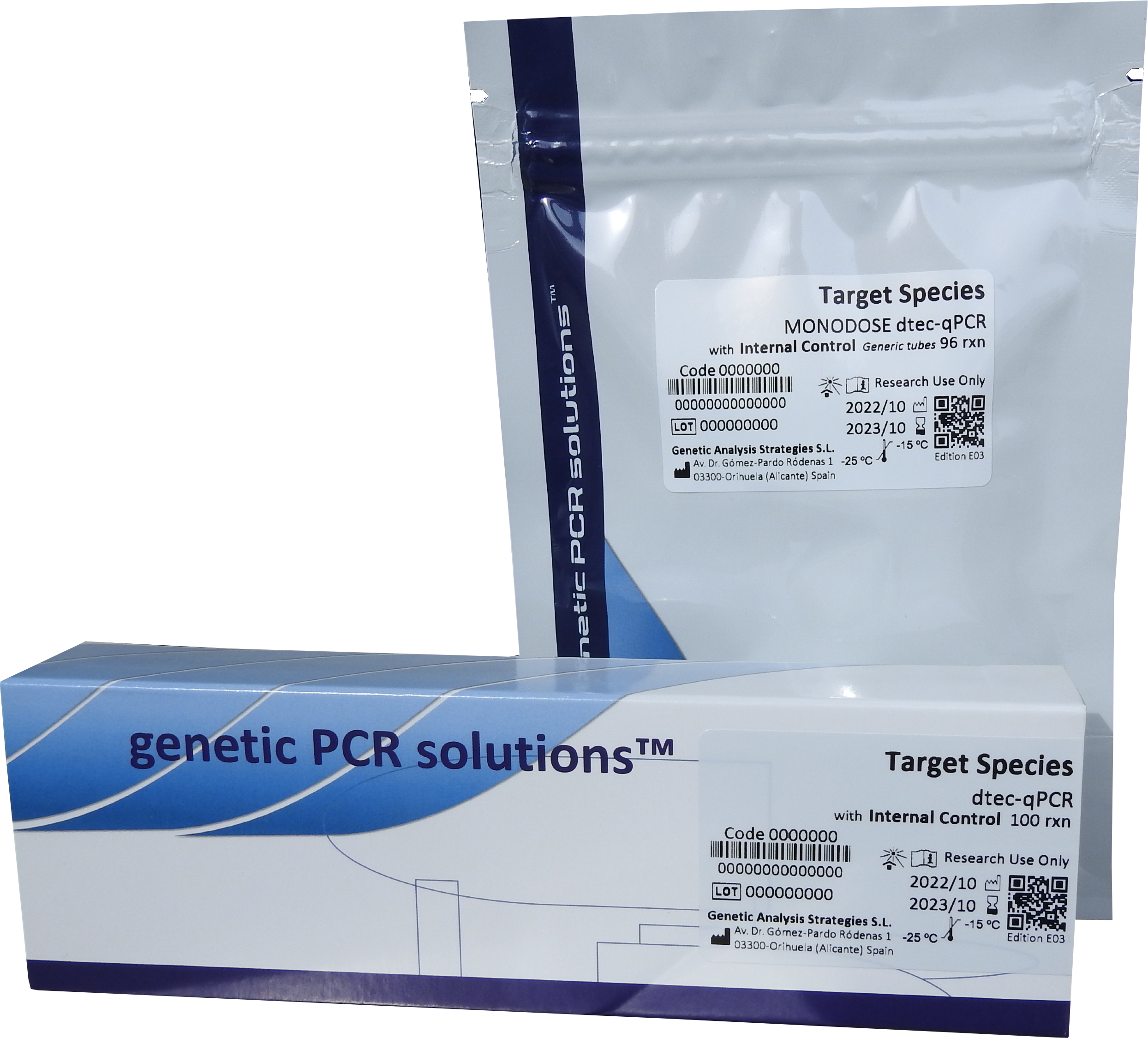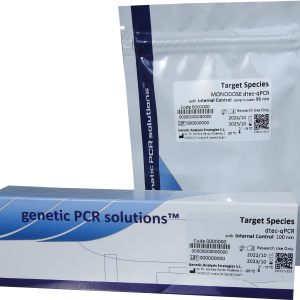Ralstonia solanacearum
Description
The RalSol dtec-qPCR comprises a series of specific targeted reagents designed for Ralstonia solanacearum detection by using qPCR. Ralstonia solanacearum is an aerobic non-spore-forming, Gram-negative, bacterium belonging to the Burkholderiaceae family. It colonises the xylem, causing bacterial wilt in a very wide range of potential host plants as potato, tomato, aubergine, banana, geranium, ginger, tobacco, sweet pepper, olive, rose and soybean. R. solanacearum usually enters the plant by a wound. Unlike many phytopathogenic bacteria, R. solanacearum potentially requires only one entry site to establish a systemic infection that results in bacterial wilt. Within the R. solanacearum species complex, the four major monophyletic clusters of strains are termed phylotypes, that are geographically distinct: phylotypes I-IV are found in Asia, America, Africa, and Oceania, respectively.
Kit Content and Prices
GPS™ primers and probes are sold for research use only
All GPS™ Kits are available in F100 and MONODOSE Format
GPS™ reagents are compatible with all qPCR devices



